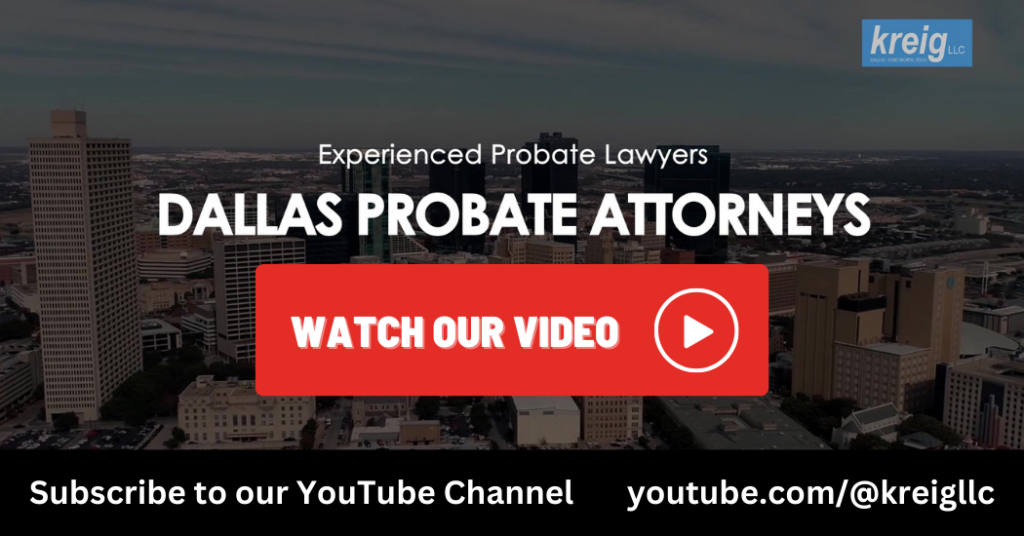In some cases, a testator’s negative feelings toward a beneficiary can indicate fraud or undue influence in the creation of a will. Texas probate courts allow a testator’s sentiments to serve as evidence if relevant facts corroborate deceitful intent. This article explores how emotions can demonstrate improper actions and provides an example case.
Facts & Procedural History
The decedent passed away and left behind a will. Her grandson moved to file the will to probate. This will favored the grandson over the decedent’s daughter. Litigation ensued when the decedent’s daughter claimed the will was fraudulently executed without the decedent’s full awareness.
Undue Influence
Undue influence refers to improper influence applied by one party on another, which results in the victim making an uninformed decision.
To prove undue influence, all of the following must be true:
- the existence and exertion of an influence,
- the effective operation of that influence so as to subvert or overpower the decedent’s mind at the time of the execution of the testament, and
- the execution of a will which the maker would not have executed but for such influence.
The party contesting the will bears the burden to prove undue influence, which can be difficult to do so. There are a number of factors Texas courts consider when determining whether undue influence has occurred during the execution of a will, including the following:
- the circumstances regarding the execution of the will,
- the relationship between the decedent and beneficiaries,
- the motive, character, and conduct of those who benefit under the will,
- participation, words, and acts of all parties attending the execution of the will,
- the physical and mental condition of the decedent at the time of the execution.
- the age, weakness, infirmity, and dependency on or subjection to the control of the beneficiary, and
- the improvidence of the transaction by reason of unjust, unreasonable, or unnatural disposition.
Showing only that a person had the opportunity to exercise influence over the decedent; that the decedent was susceptible to influence; or the existence of an unnatural disposition is not sufficient to prove undue influence.
Using Feelings as Proof of Fraud
If a testator expresses hostile emotions toward a beneficiary named in their will, it may point to willful deception. Texas probate courts can use negative feelings as evidence of fraud provided the context supports wrongdoing. Some examples include:
- The will states the beneficiary should inherit nothing due to distrust or theft. This implies misdeeds occurred.
- The testator verbally conveys dislike or ill will toward the beneficiary around will execution. Animosity suggests coercion.
- Written communications demonstrate poor relations between the testator and beneficiary. This casts doubt on voluntary inclusion.
To prove fraud, courts examine the testator’s statements, actions toward the beneficiary, and any facts indicating improper influence. Sufficient evidence may result in disinheritance.
Along with emotions, courts also evaluate additional factors in judging fraudulent intent, like drastic changes from previous wills, suspicious circumstances, mental incapacity evidence, and coercion indications.
Best Practices When Contesting a Will for Undue Influence
If challenging a will based on a testator’s feelings, key steps include gathering documentation of animosity, presenting corroborating medical records, interviewing witnesses, analyzing previous will versions, and contextualizing sentiments within a broader argument. With proper substantiation, emotions can show fraudulent intent. But contestants should utilize feelings as part of a robust overall case.
In this case, based on witness statements, undue influence was proven to have been exerted on the decedent by her grandson. The witness stated that the decedent had already gifted the property in the contested will to her daughter. Furthermore, it was known that there was animosity between the decedent and her grandson, which was corroborated by the grandson in a letter he wrote stating that he expected issues with the inheritance after her passing and after she unknowingly signed the will favoring him.
The Takeaway
Texas probate courts assess feelings within the full context of each dispute. Negative sentiments alone do not definitively establish fraud. But combined with other evidence, emotions can demonstrate improper influence occurred.
Our Dallas Probate Attorneys provide a full range of probate services to our clients, including helping with probate litigation. Probate is what we do. Affordable rates, fixed fees, and payment plans are available. We provide step-by-step instructions, guidance, checklists, and more for completing the probate process.We have years of combined experience we can use to support and guide you with probate and estate matters. Call us today for a FREE attorney consultation.
Disclaimer: The content of this website is for informational purposes only and should not be construed as legal advice. The information presented may not apply to your situation and should not be acted upon without consulting a qualified probate attorney. We encourage you to seek the advice of a competent attorney with any legal questions you may have.
Don't miss out, get a copy today!












